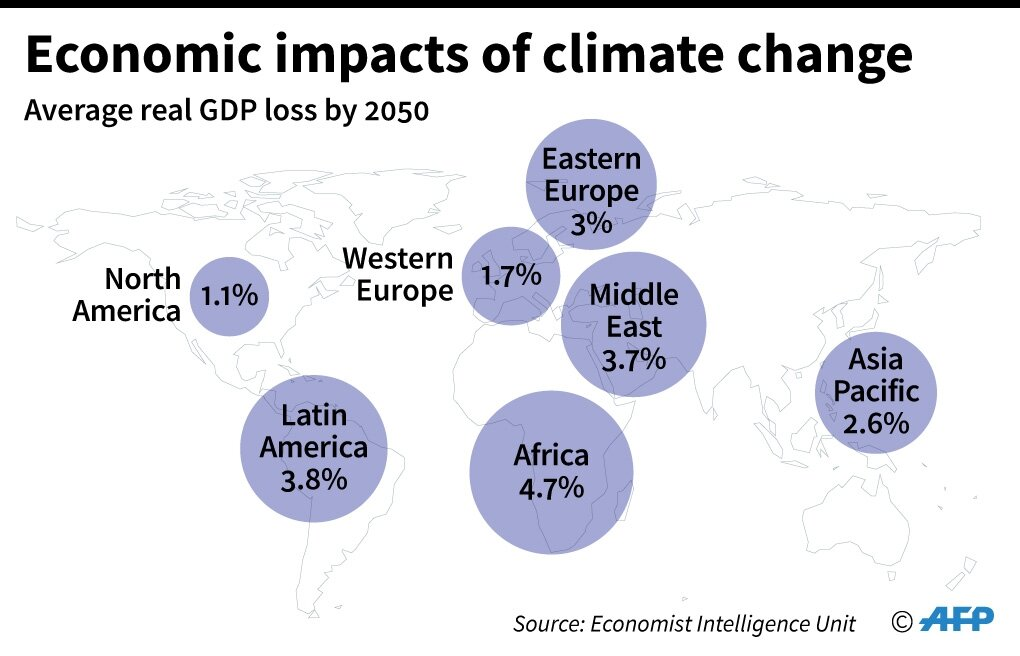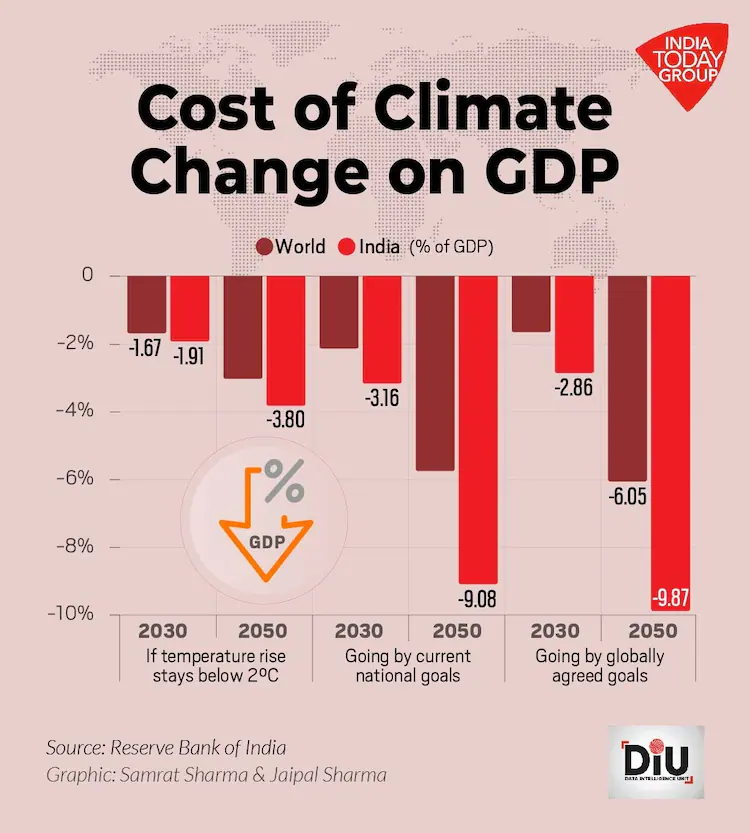Editorial Analysis 27 May
Daily Editorial Analysis
Editorial Analysis based on “The growing cost of climate change” which was published in The Hindu Business Line.
Introduction:
The growing economic impact of climate change has become increasingly evident as global temperatures continue to rise, leading to significant financial repercussions for economies worldwide. Recent studies highlight that the adverse effects of climate change are more severe than previously estimated, with potential global GDP losses and a substantial decline in average incomes.
The costs associated with extreme weather events, reduced agricultural productivity, and health impacts are escalating, placing a heavy burden on both developed and developing nations. As the frequency and intensity of climate-related disasters increase, there is an urgent need for comprehensive strategies that address both mitigation and adaptation to safeguard economic stability and promote sustainable growth.
The US National Bureau of Economic Research Working Paper has highlighted the following issues with regard to climate change:
- Higher Global GDP Without Global Warming: The world GDP would be 37% higher today had no global warming occurred between 1960 and 2019.
- Higher Economic Costs: The economic costs of a hotter planet could be six times more than previous estimates.
- Comparison with Nature Paper: A recent Nature paper concluded that average incomes will fall by almost a fifth in the next 26 years due to climate change.
- Transition Costs vs. Climate Change Costs: Both studies highlight that the costs of transitioning from fossil fuels are significantly lower than the costs imposed by global warming.

Impact on Ecosystems:
- UN Report on Rangelands: A UN Convention on Combating Desertification report highlights the impacts of climate change on rangelands, including desert shrublands, mountain pastures, tundra, and plateaus.
- Degradation of Rangelands: More than 50% of rangelands have degraded.
- Carbon Sinks: Rangelands play a crucial role as carbon sinks but are often overlooked in environmental conservation compared to forests.
Impact on Specific Communities:
- Pastoralists in India: Indian policymakers have only recently started recognizing the socio-ecological role of pastoralists, such as the Maldharis, Van Gujjars, and Rabaris.
- Developmental Challenge: Integrating pastoralist communities into the modern economy while protecting their way of life remains a critical challenge.
Global Climate Policy:
- Focus on Mitigation: Global climate policy has primarily focused on mitigating climate change.
- Need for Adaptation: Recent studies emphasize the need to build resilience against climate change impacts like heat waves, floods, and droughts.
- Underfunded Adaptation: Adaptation strategies continue to be underfunded despite growing awareness.
- Future Climate Funding: The upcoming CoP in Baku will need to address the imperative of adaptation funding.
Economic impact of climate change in India:
- Agricultural Productivity Decline:
- According to the Ministry of Agriculture, climate change could cause a reduction in wheat yields by up to 6-23% by 2050. This decline can threaten food security and the livelihoods of millions of farmers.
- Economic Losses from Extreme Weather Events:
- The Economic Survey of India 2017-18 estimated that the country loses around 1.5% of its GDP annually due to climate change-related extreme weather events. This includes losses from floods, droughts, and cyclones, which disrupt economic activities and infrastructure.
- Water Scarcity:
- The NITI Aayog's Composite Water Management Index (2018) reported that 21 major cities, including Delhi and Bengaluru, are expected to run out of groundwater by 2020, affecting 100 million people. Water scarcity impacts agriculture, industry, and domestic water supply, leading to economic and social challenges.
- Health Costs:
- The Lancet Countdown on Health and Climate Change (2020) indicated that in 2019, India had 31 million cases of heat-related illnesses due to rising temperatures. Increased healthcare costs and reduced productivity due to heat stress and related illnesses burden the economy.
- Migration and Livelihood Displacement:
- A World Bank report (2018) projected that by 2050, climate change could displace around 40 million people in South Asia, with a significant portion from India. Displacement leads to loss of livelihoods, increased urban migration, and additional strain on urban infrastructure and resources.

For detailed understanding on impacts and way ahead read:
https://www.iasgyan.in/daily-current-affairs/earths-soaring-temperature



1.png)
